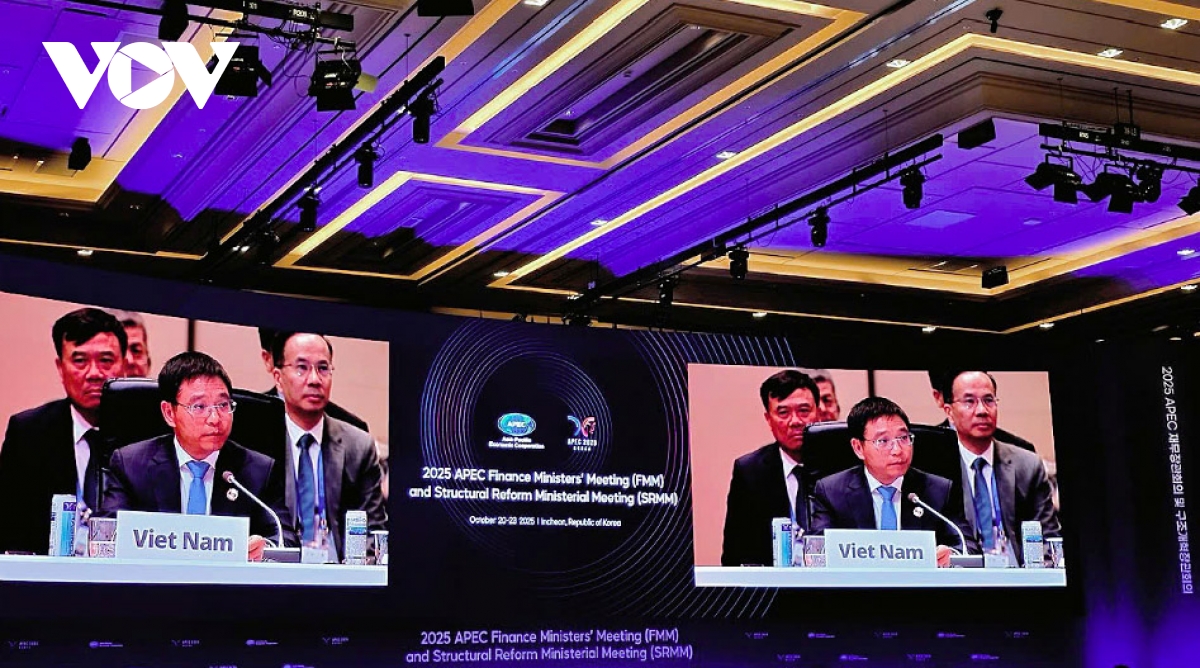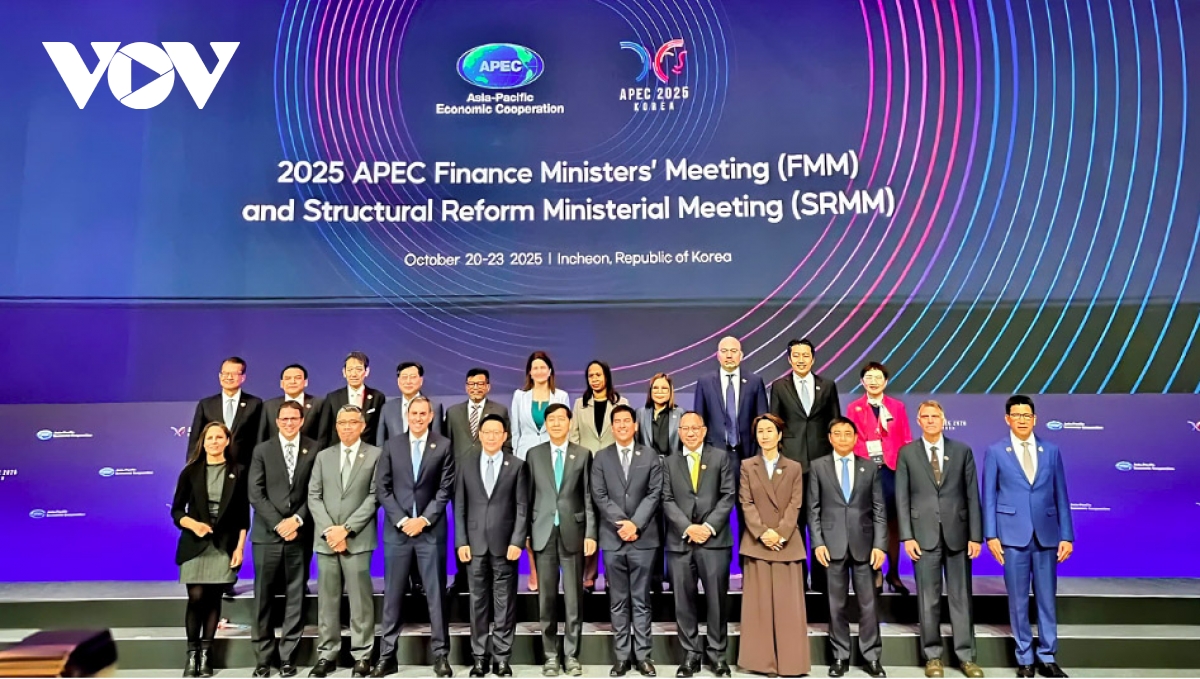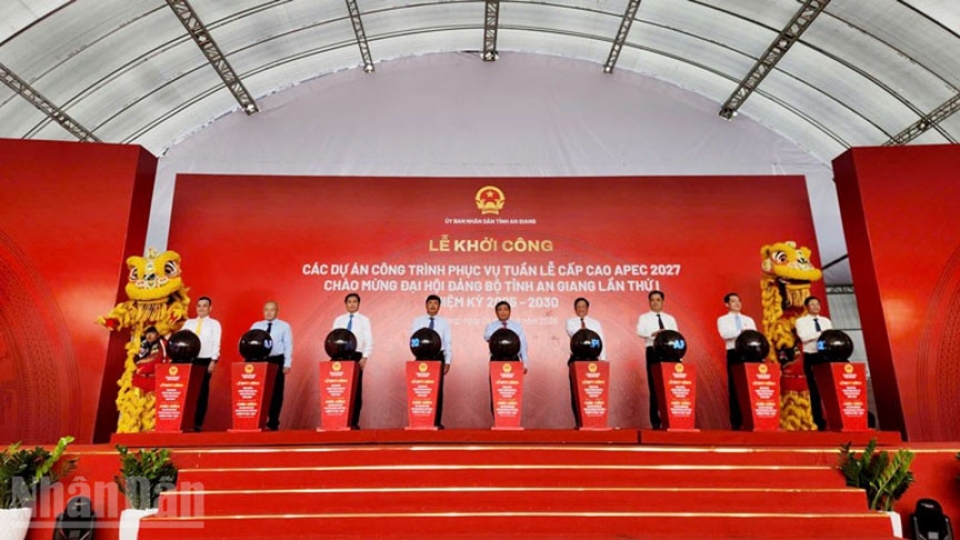Vietnam pledges to support APEC’s long-term stability and prosperity
VOV.VN - Vietnamese Minister of Finance Nguyen Van Thang shared Vietnam’s economic outlook and showed the country’s commitment to contributing to the stability and prosperity of the APEC region at the 32nd APEC Finance Ministers’ Meeting in Incheon, the Republic of Korea, on October 21.

In his remarks, Thang said, Vietnam secured economic growth of 7.84% in the first 9 months of 2025, aiming to achieve a target of 8.1% – 8.5% for the whole year. Nine-month FDI registrations amounted to more than US$28.5 billion, reflecting the country’s increasingly important role in global supply chains. Inflation was kept under control, with the CPI rising by 3.27% on average in the nine-month period.
The Minister emphasised that Vietnam would continue to pursue its goal of achieving double-digit economic growth (10% or higher) during the period 2026-2030. Key strategies include advancing science and technology, innovation, and digital transformation, as well as developing the private sector and deepening international integration.
The Minister also highlighted the importance of improving the institutional framework, reducing administrative procedures, and creating a conducive environment to attract and optimize social resources.
Notably, Vietnam is continuing to implement initiatives in digital finance, including digital transformation in public finance and the development of an international financial centre. It is also piloting a digital asset market and applying artificial intelligence (AI) in finance, while introducing measures to ensure AI applications are safe, transparent, and sustainable.
Taking place in Incheon, the 2025 APEC Finance Ministers’ Meeting themed “Sustainable Growth and Shared Prosperity in the Region” focused on three priority areas for APEC 2025 - Innovation, Digital Finance, and Fiscal Policy. The Ministers assessed the global economic situation, highlighting that despite recovery from the COVID-19 pandemic, the global economy still faces significant challenges such as geopolitical tensions, public debt risks, and climate change.
In this context, APEC members agreed on the importance of maintaining flexible macroeconomic policies and promoting multilateral cooperation as key drivers for strengthening the region’s resilience and growth. Innovation was considered as the main driver of productivity growth in the region. The Ministers also highlighted the importance of public-private collaboration in developing technology and digital finance.

The meeting recognised the potential of artificial intelligence (AI) in finance, especially for increasing access to capital for micro, small, and medium enterprises (MSMEs). However, APEC members agreed on the need to build a safe and transparent policy framework to foster the AI ecosystem, protect consumers, and ensure financial stability.
Regarding fiscal policy, the meeting reaffirmed the key role of sustainable fiscal management in maintaining macroeconomic stability. The Ministers agreed on the need to strengthen fiscal discipline, carefully manage public debt, and enhance public spending efficiency. Investment in infrastructure and high-quality human capital was also highlighted as a priority for maintaining long-term growth. The public-private partnership (PPP) model was encouraged as an effective tool for mobilising social resources and improving public services.
At the conclusion of the meeting, the Finance Ministers approved the 2026–2030 Incheon Plan, which will guide the APEC Finance Ministers’ Process (FMP) over the next five years, built around key pillars such as innovation, finance, fiscal policy, and access and opportunities.
The meeting also agreed on the 2025 APEC Finance Ministers’ Joint Declaration, with a commitment to further fostering financial cooperation and sustainable development in the region.
China will assume the role of chair for the 33rd APEC Finance Ministers’ Meeting in 2026.





